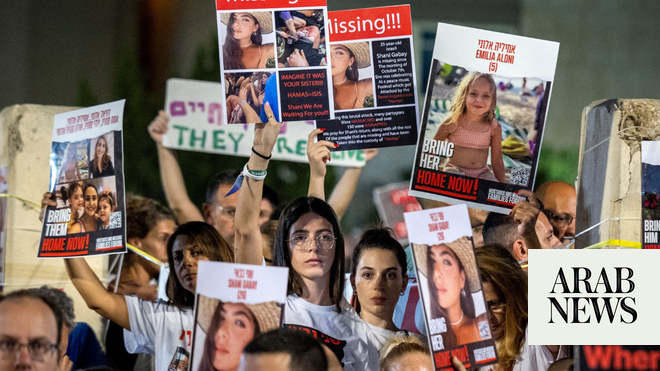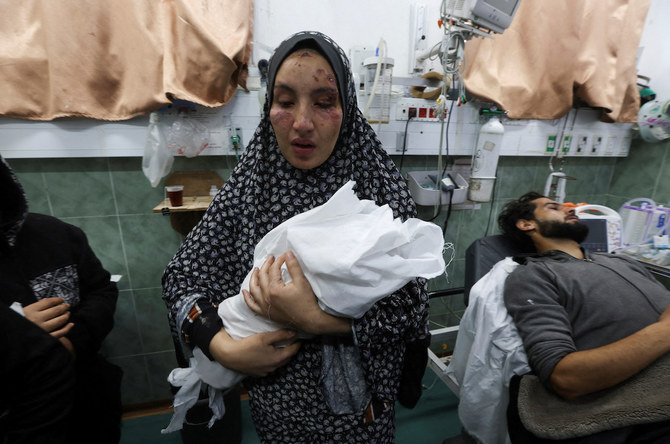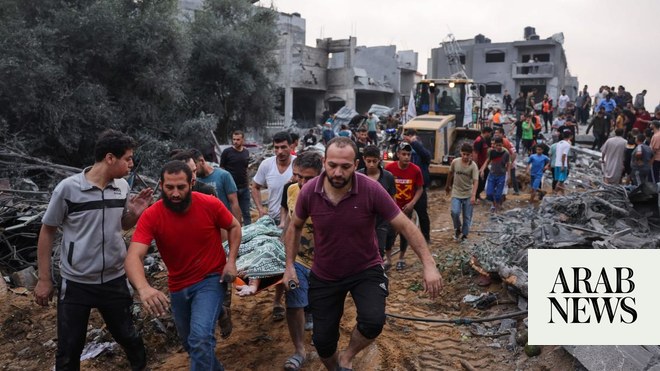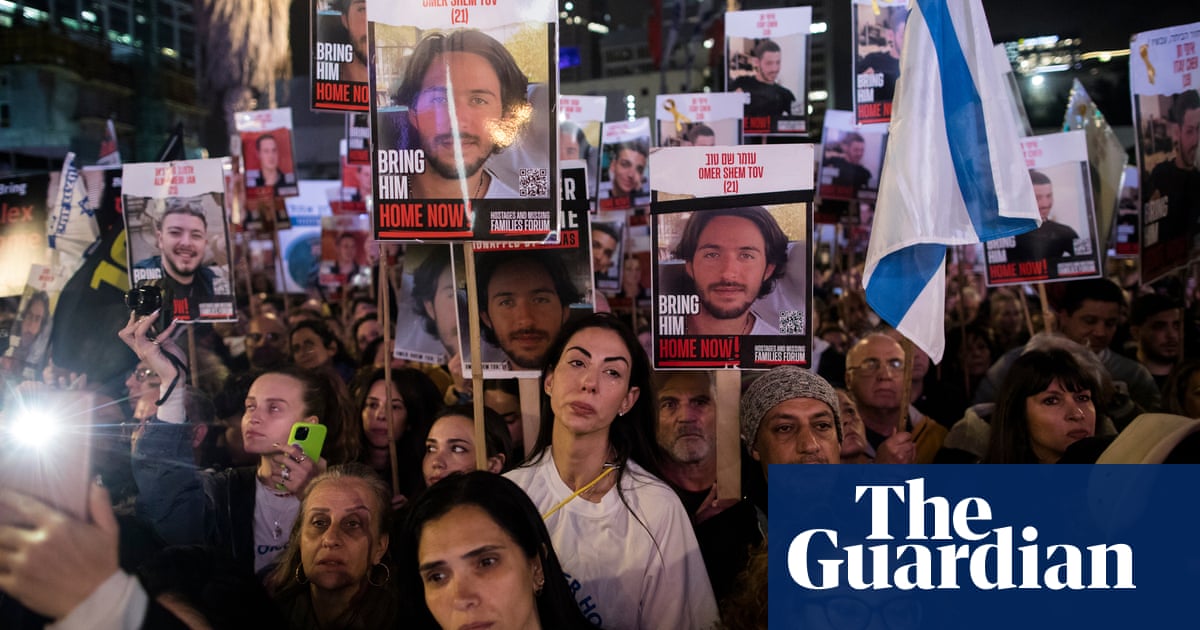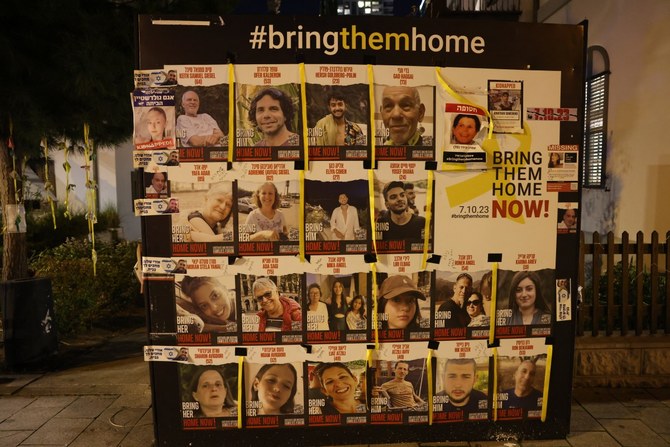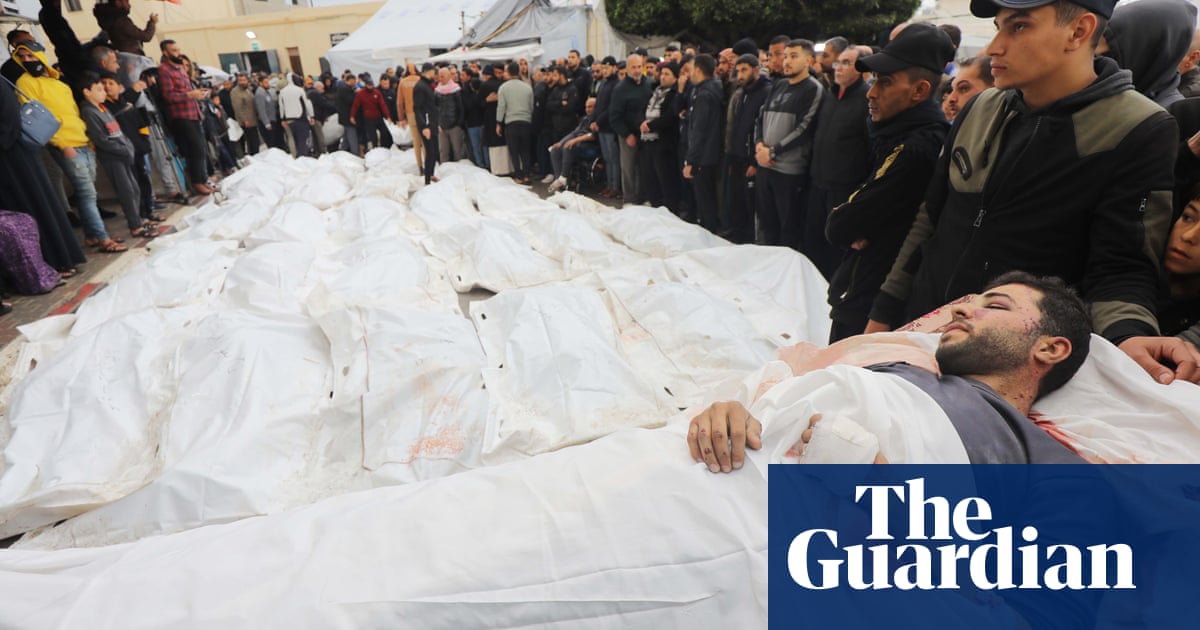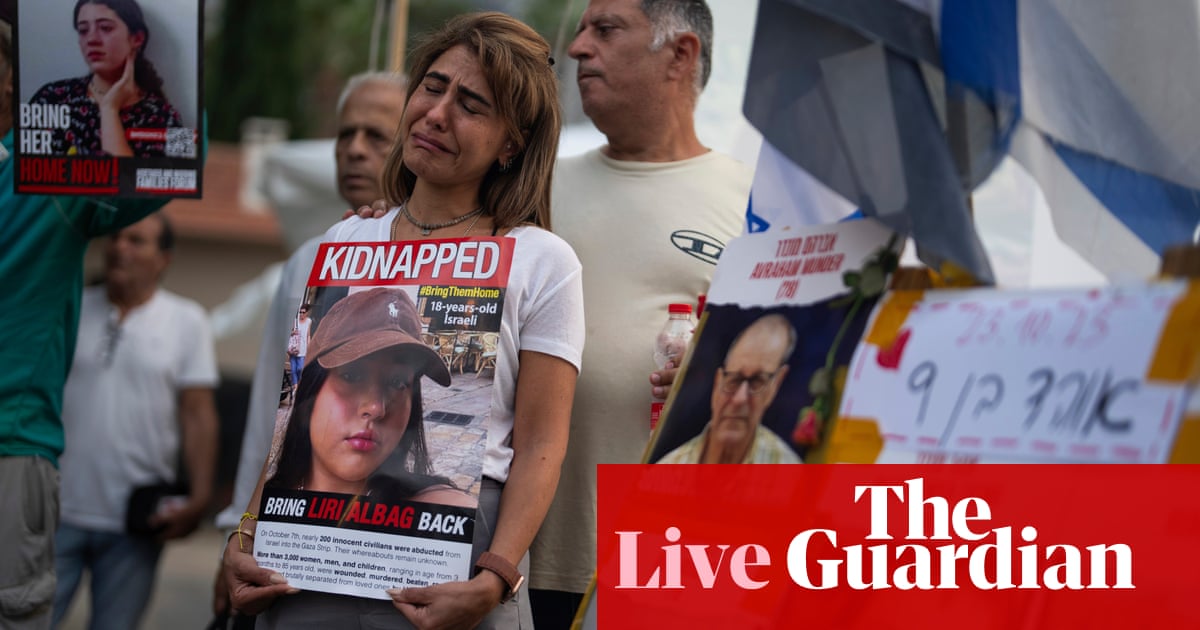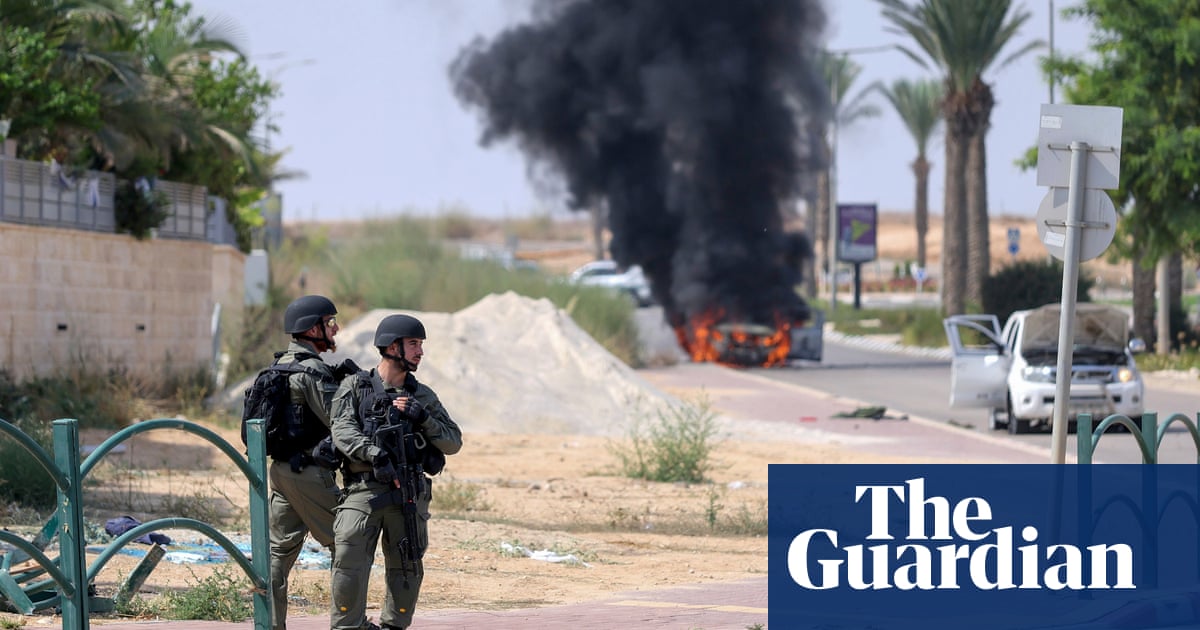
More than 100 Israeli hostages, including women and children, may have been taken into Gaza by Hamas, hugely complicating any Israeli military operation to free them.
Amid shocking images of terrified Israeli soldiers and civilians – some bloodied, others hooded and with their hands tied – being marched away by Hamas militants, the whereabouts and fate of the captives has become one of the most pressing issues for military planners.
While a spokesperson for the Israel Defence Forces (IDF), Lt Col Jonathan Conricus, has said only that a “significant number” of Israeli civilians and soldiers are being held hostage, that number is believed to be in the dozens, with some Israeli news outlets speculating that more than 100 have been taken hostage.
Officials in the US and UK were urgently investigating claims that several Americans and one British citizen may have been captured.
According to reports, while most hostages were taken by Palestinian armed factions, some Palestinian civilians who also entered Israel may have taken captives too.
Among those reported as missing is Jake Marlowe – a British citizen who was attending a music festival in the south of Israel. His family have been unable to reach him since Hamas infiltrators attacked the event.
Conricus said some hostages were alive while others were presumed dead, in line with the practice of Gaza’s militant factions of taking human remains to exchange for Palestinian prisoners in Israeli jails.
“These are numbers that were up until now unimaginable,” said Conricus. “This will shape the future of this war.”
Israeli TV news aired a stream of accounts from the relatives of captive or missing Israelis, who begged for assistance amid a fog of uncertainty surrounding the fate of their loved ones.
Among them was Ora Kuperstein who was interviewed on Israeli Channel 12 and said her family was looking for her nephew, 21-year-old Bar, who was working at the rave that was attacked by Hamas, and taken into Gaza. “Nobody has told us anything. Nobody is helping us. It’s chaos,” she said. “His parents know nothing. He got there on Friday evening. From the videos we’ve seen he was next to the guards, who were the first to get shot.
“He had no weapon, they took him with other young people.”
Videos circulating online appear to show Israelis in the hands of Hamas fighters both during their seizure from communities in southern Israel and later in locations in Gaza, with one geolocated video showing a truck being driven through crowds on the Gaza Strip with Israeli hostages.
Another video circulating appeared to show an Israeli child in the coastal strip, while yet another appeared to show a wounded Israeli soldier in Gaza being beaten by bystanders.
Despite the displaying of the hostages on their arrival in Gaza, the working assumption is that they will have been quickly dispersed amid fears they will be used as human shields in the likelihood of an Israeli ground assault.
IDF officials have announced they are compiling a “situational picture” for locating the captives, both soldiers and civilians, saying: “Some families have already received messages about their loved ones.”
An Egyptian official said Israel had already sought help from Cairo to ensure the safety of the hostages, and that Egypt’s intelligence chief had contacted Hamas and the smaller but more radical Islamic Jihad group, which also took part in the incursion, to seek information.
The official said Palestinian leaders claimed that they did not yet have a “full picture” of hostages, but said those who were brought into Gaza were taken to secure locations across the territory. “It’s clear that they have a big number – several dozens,” said the official, who asked not to be identified because he was not authorised to brief media.
The sheer scale of the hostage crisis confronting Israel suggests that the experience of the country’s most high profile former hostage in Gaza, Gilad Shalit, who was held for five – and a half years after being taken prisoner in 2006 is unlikely to be indicative of how they will be treated.
While Hamas has probably based its judgments over how Israeli society will react to a large hostage-taking on the precedent of Shalit, who was exchanged for 1,000 Palestinian prisoners, it is far from a given that Israel, reeling from the shock of Hamas’s assault and after declaring war, will see its hands as being tied by Hamas in its military response.




